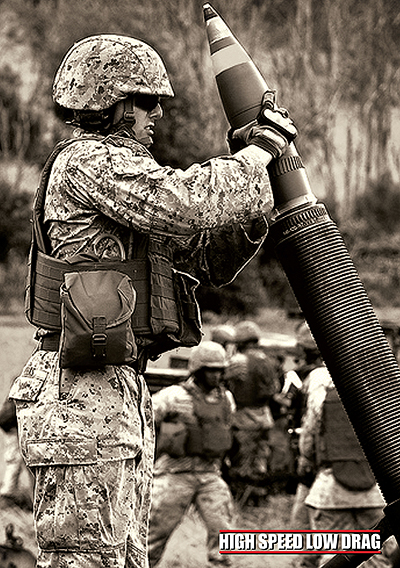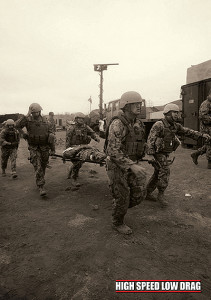 While each veteran’s experience may be highly different from each other’s, there is no doubt that there are some striking and even universal similarities too.
While each veteran’s experience may be highly different from each other’s, there is no doubt that there are some striking and even universal similarities too.
One of the main things is that going back to the real world AKA the civilian world after serving can not only be daunting but can also be confusing as well.
While there are so many things that can be considered confusing High Speed Low Drag has narrowed all of that down in a more manageable list.
We’ve highlighted perhaps the 11 main things that are most confusing to many veterans.
If you’re a veteran that has transitioned out to the civilian world or is still currently undergoing the process then you may want to check out this list and see if you can relate!
Besides that we’ve also pinpointed ways on how to fix these confusions to help all veterans out there who may be looking for some sort of stability and want to figure out a way forward.
Allow us to note that these confusions are normal and there is really no reason to be ashamed of them.
CLICK here to listen to the 11 Things That Confuse Veterans In The Civilian World on iTunes
Click here to listen to the 11 Things That Confuse Veterans In The Civilian World on Stitcher
However it would still be good if you could correct them as soon as you can so that they do not hinder your growth and transition:
1. There are many civilians out there that actually do what they say they are going to do. However, many veterans end up puzzled when civilians say they will do something but don’t really take it seriously.
For veterans a soldier’s word is his bond. The marine’s motto is “Always faithful”. This is why it can be so perplexing in the civilian world when you ask someone to do something and they just don’t do it!
Remember that there are no repercussions here which may be why others don’t feel the pressure of actually fulfilling their word.
One thing that is actually related to this is the concept of contracts. In the military, they are very minimal as everything was taken at face value. When someone tells you to do something you pretty much do it.
The civilian world is different because when you require someone’s service, you pretty much need to give them a contract so there is a binding agreement.
This also happens beyond the business world. Friends will say that they will see you later but they suddenly flake on you. Of course all these can be very frustrating.
Perhaps the best way for military men and women to cope is to not take absolutely everything at face value and keep expectations of other people somewhat realistic.
2. Narcissism.
In the civilian world people may seem more fixated about themselves, getting creditand covering their own behinds.
It is very different in the military as it is more about accomplishing a mission.
Generally speaking, no one really takes all of the credit. Officers will defer the credit to their men and vice versa. Everyone sort of realizes in the military that they are part of a team.
This isn’t quite the case in the civilian world especially in the business world as competition is rampant. There is nothing wrong with humility and deferring the credit but it can sometimes be detrimental in the real world.
 There are veterans that have so many great accomplishments but they won’t talk about them.
There are veterans that have so many great accomplishments but they won’t talk about them.
In the civilian world, if you don’t share your skills then it isn’t very likely that you will get the job.
People can ignore you and not want to talk to you. You don’t want to miss out on opportunities because you are too humble.
It is important that you strike a balance between being humble and talking about your skills and accomplishments.
3. The importance of physical goods and image
Many veterans see other soldiers losing their lives in the service that they kind of understand that if you look at the big picture, material things don’t really matter.
However there are so many places in the world that are very consumer-driven or perhaps fast-becoming so. This is a fact that veterans have to be aware of.
Don’t be surprised if people look at the kind of car that you drive, the clothes that you wear and the house that you live in and see that as more important or telling of your character than your actual character yourself.
Veterans can get depressed because of this especially when they see that so many things that they consider superficial are considered so important by most of the civilian world.
No one is saying that you should change and suddenly place importance on these things. Of course it is still important to let your good character shine through. Keep in mind though that other people may not know better because they have not seen anything else.
In saying that there is a fine line between not getting caught up in material things but actually taking the time and effort to look good. It is all dependent on the kind of civilian job that you hold.
If you’re an electrician or a plumber then there is certainly no need for you to own a suit or a fancy car but if you work in finance it may be more important to pay more attention to how you dress and how you generally appear like.
Whatever you do it is essential that you are able to send out a signal of competency and trust. If wearing a uniform and dressing decently is the way to do it then by all means do it!
 4. Lay-offs and being fired
4. Lay-offs and being fired
Lay-offs are very rare in the military although recent events are beginning to change that.
However, it is still safe to assume that if you’re a hard charger you will pretty much be taken care of.
This isn’t always the case in the civilian world. You can get fired or laid off just like that.
Veterans need to be conscious about the fact that if you don’t perform you could or will get cut.
The key to avoid being cut is to be flexible. Always find ways to sharpen your sword and improve and grow your skillset.
5. Negotiating your salary
No one in the military has the luxury of salary negotiation.
The military way of payment is something close to communism wherein everyone of the same rank pretty much gets the same thing and people are paid based on their personal need.
In the military a married man with 5 kids would get paid more compared to a single guy.
In the civilian world things are different. You actually have the most leverage when you’re first hired.
It is up to you to negotiate your salary and pretty much decide if you are happy with how much the pay is for the jobs that you are going after.
Remember this: the guy who is paid 100k may not be necessarily doing more than the guy who is paid 50k. The 100k guy may have just done a better job at negotiating.
The way to know how to negotiate your salary is to educate yourself. Be open to the fact that you may not know much about the topic at hand and look up great books and other resources. A good one is a book entitled “The Heart and Mind of the Negotiator”.
You also need to understand that there are soft skills that may be important to you but not important to the company. Look at things than more than just money.
There are other factors to consider such as benefits, time off, working hours, just to name a few. If you can come up with an arrangement that you are happy with then you will have succeeded at negotiating what you’re actually getting from the company.
6. Translating your stories and experiences
The military has a certain jargon and almost a different language when it comes to many things. Getting used to this language can lead to confusing situations for veterans who are transitioning out.
They could be so used to using certain words and acronyms when telling stories that they forget that not everyone has been in the military and may not understand what they are talking about.
Sometimes veterans can also come across too cocky when telling their story that it puts people off. The key to striking a balance is to tell your story using laymen’s terms and just summarizing the bulk of the stuff that you did.
If other people want to know more details they will ask you and that is the time when you can get more into your story.
Talking about yourself too much will only leave a bad impression. Just hone in on a short story that sticks, enough to make you stand out to a potential employer or your peers.
 7. Understanding the language of business
7. Understanding the language of business
The language of business is certainly confusing especially to a veteran who may have no background of it whatsoever.
The good news is that there are so many ways that veterans can escape the confusion and gain some sort of understanding.
Listening to podcasts and reading are two great examples!
Veterans can’t just stand around and hope that they will get the language of business one day.
They really have to be pro-active about the whole process. Go out there and start reading business books. Listen to podcasts.
Pretty soon you will pick stuff up. It’s all about immersion and the more you immerse yourself in the business world the more you will know what to do and what everything means.
8. Finding a new career path
If you’ve known nothing but be in the military then the idea of suddenly finding another job can be daunting. You probably wouldn’t know the first thing to do.
The first thing that you need to put in your head is this: What you did in the military does not have to define you and it doesn’t have to define your future unless you want it to.
You are very welcome to reinvent yourself and go after the path that you really want. Think of the military as a great experience not a defining one. You are never too old to go out into the world and do something new.
9. Taking time off
Taking time off in the military is so different from taking time off in the real world. When you take time off as a soldier you pretty much have no responsibilities to the army for the whole amount of time that you are off. You can pretty much disappear into the world.
In the civilian world time off isn’t like military time off. You may technically have a 3-week vacation but if you neglect to answer calls and emails you could come back only to find out that you may not even have a job!
Being aware of this little reality could not only save you from confusion but even save your job so do keep this in mind.
 10. Healthcare and 11. Insurance
10. Healthcare and 11. Insurance
These last two confusions are very closely related to each other which was why we thought to tie them together.
Both healthcare and insurance are fully covered for people who are in the military.
Soldiers and veterans may have many things to say about the quality of healthcare and insurance that they are or were getting but it was safe to say that at the end of the day, both were covered.
In the civilian world (speaking for the United States) healthcare and insurance is not automatic.
You have to make sure to secure those things for yourself.
While being a veteran may have its benefits, not all veterans get insurance and healthcare coverage once they are out of the military.
Be very aware of this and know how your personal healthcare and insurance policies work. If they aren’t what you are expecting then make sure to make the necessary changes so that you are covered.
An extra tip for those transitioning is to ask questions. There are people who are more than happy to assist you in these matters while you are in the process of transitioning.
These people will actually answer any queries that you may have and explain stuff that you may not fully understand.
These are only a sample of the most confusing things for veterans. We have no doubt there are plenty more.
If you want to bring something up or discuss any of these items at depth, know that you can always reach us. Leave us a comment or write us an email and we would be happy to get back to you!
CLICK here to listen to the 11 Things That Confuse Veterans In The Civilian World on iTunes
Click here to listen to the 11 Things That Confuse Veterans In The Civilian World on Stitcher
